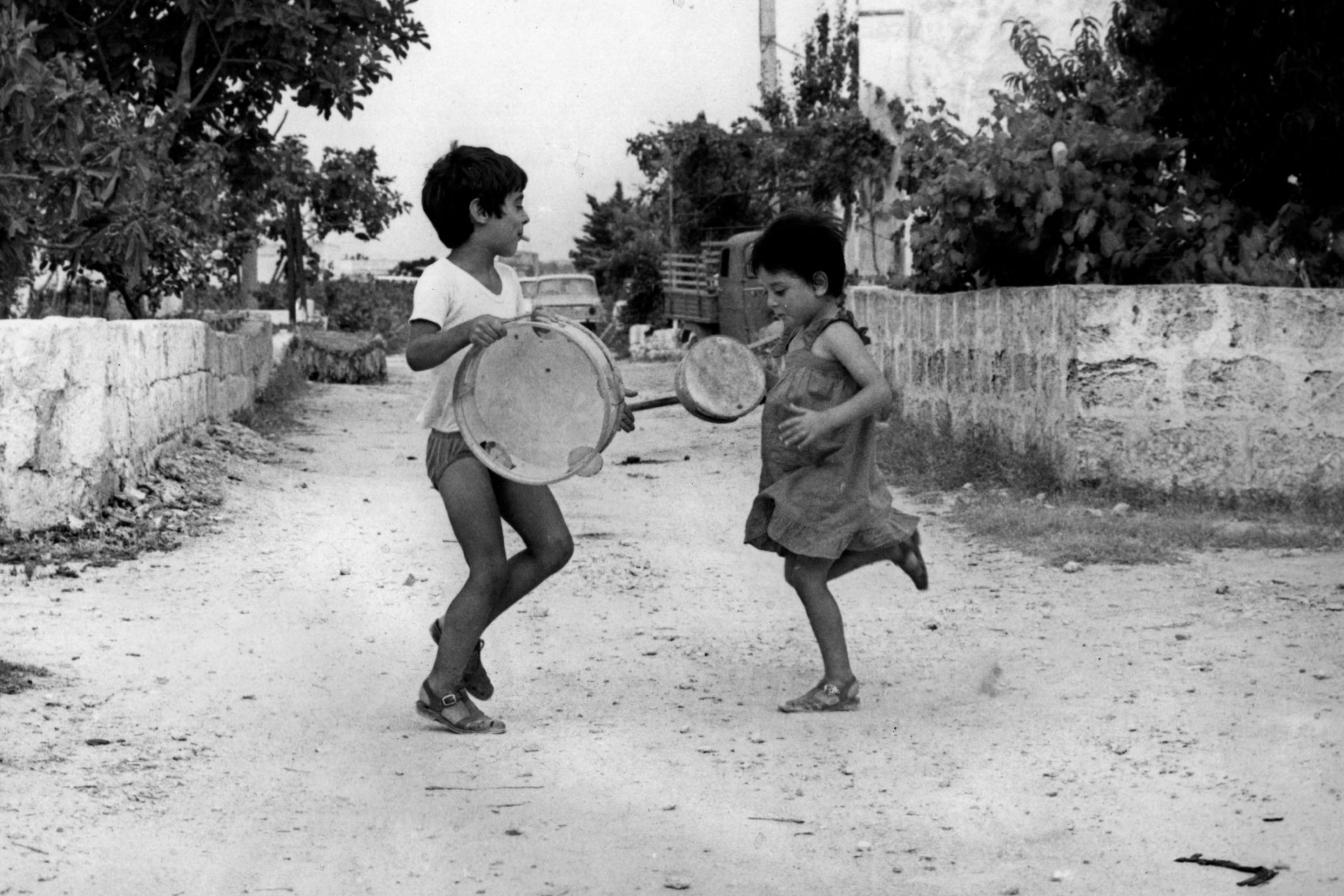The History
Founding a theatre starting from man.
There was once a farm in Aradeo countryside, the 80’s and a big desire to have a ‘voice’.
Choosing to act in the south, where eyes are used to desire, in a border that paradoxically had no theatre despite the popular tradition, feasts, and fantasies told by the stones. An imaginery that had no scene, thinking and dramaturgy. A south where feeling nomad is the essence of looking for, of the desire of raising and practising. The first centre of Koreja Theatre was founded officially in 1985 in Aradeo, where the company lived in Castello Tre Masserie adopting the name Koreja. The word Koreja is a forcing from griko dialect, where koreja means ‘ circular movement’ that in turn comes from ancient greek χορεια. Moreover the term is in one of Jerzy Grotowski’s writings where koreja means three in one: dance, music and singing. Since the beginning, the company has been directed by Salvatore Tramacere, actor and director who trained with the most important drama professionists as Eugenio Barba, Iben Nagel Rasmussen, Cesar Brie, Silvia Ricciardelli and Pina Bausch.
The first group, that acted from 1983 to 1998, promotes and organizes, in collaboration with public institutions, the international festival ‘ Aradeo e I teatri’, an important part of the drama in the south, that hosts national and international artists. Since the beginning koreja acts proposing itself as a centre of dramatic production, research and promotion addressed to a large audience. Since 1991 in collaboration with Italian theatrical institution and with local institutions, it organizes a drama poster in the city of Lecce called ‘ Strade Maestre’, a project of dramatic promotion addressed to disadvantaged areas of the Country. In 1998 koreja moved its seat to the outskirts of Lecce, in the neighborhood of Borgo Pace. Here it buyed and restructured at its own expense an old brick factory and transformed it in a theatre: Cantieri teatrali Koreja. The idea of inventing and building it in an old brick factory is at the same time a challenge and a gift to a town that hasn’t been always inclined to accommodation.
In 2003 Cantieri teatrali Koreja have been recognized by the Ministry of culture and education as ‘ Theatre of Innovation’ of Salento for research and experimentation, confirming the productive vocation and a strong bond with local territory. In 2015 Cantieri teatrali Koreja have been recognized by the Ministry of culture and education as ‘ center of drama production and experimentation for childhood and youth’, the only one in Apulia.
Since 2017 the theatre makes use of a scientific committee composed of Eugenio Barba, Nicola Savarese and Franco Perrelli.
The artistic project of Koreja is formed by works, actions and stories – both little and big- that start from far away and come from the necessity of building in the both loved and hated south a ‘ residence for theatre and culture’, open to innovations and to comparison among different generations; a kaleidoscope of arts and practices where roots and languages unify in a relationship of mutual respect , avoiding useless provincial pride with the aim of experimenting new directions, languages and poetry.
The project of Koreja is a wide-ranging one, which lives inside and outside the theatre, in a continuous journey. Works, actions and stories also imply the production of plays that take shape in the theatre and get to a huge audience during tours and involve the hospitability of companies and artists, cultural meetings, exhibitions and outdoor rehearsals; it means dramatic training addresses mostly to young and disadvantaged people and finally a permanent dialogue with audience and institutions.
Koreja experience was born in the 80’s as an idea of community where it’s important to put differences together.
The soul of Koreja is homemade since its beginning and not a commercial one. The group of the origins is composed of Salvatore Tramacere, Stefano Bove, Franca Carallo and Francesco Ferramosca: a small group of young people looking for symbols, references, new thoughts animated by the necessity of practicing drama, in a south where there was no drama.
In addition to Tramacere’s artistic direction, it is fundamental for the group the international vision brought by Silvia Ricciardelli, who comes from Naples and have been training at the Odin Teatret for 10 years. Her bet is teaching a type of drama that does not exist, a kind of work where actors produce materials that the director elaborates and transforms in a play. Her pedagogy of transmission of drama experience is applied with the whole company because ‘theatre is like mercury: you divide it, it opens and then reunify itself. It’s a game of molecules that join and fall apart in a succession of experiences.’
So the company has been founded through self- study experiences made by attempts, mistakes, experimentations and tracks; these experiences involve people who wonder everyday ‘ what to do’ and ask themselves ‘ how’ going on testing their skills, people who are interested in a path more than in showing a result in a pedagogic process where they move from being pupil-actor to actor-pedagogue.
The artistic core is still characterized by ‘practice looking for theory’ , that is based on the meeting more than written word, on the emotion and relationship more than diktat and codified rules although discipline and rigor lead the action. Little defeats and little achievements open to new perspectives, offer visions, lead languages, writings and experiences in a process of continuous change.
Marginality still represents the predisposition to the proximity to borders, those borders that cross and contaminate each other. Everyday we chose to be still artisans, to place ourselves in a corner ‘ to look better’ removing cultural and ideological barriers that obstruct the daily construction of a trans-cultural theatre that starts from man.

